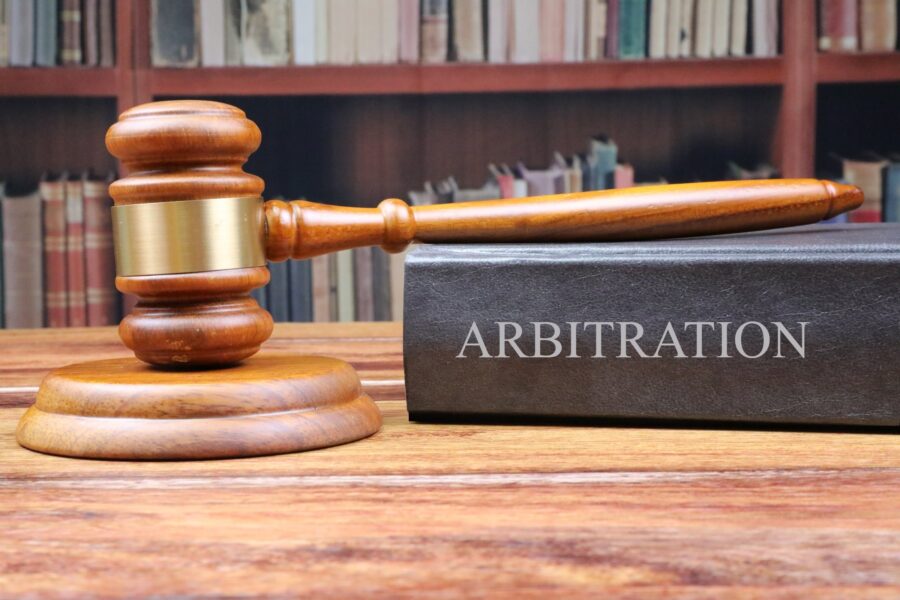INTRODUCTION
“Arbitration” is defined by the dictionary as the process of assisting parties in reaching a mutually agreeable resolution to a dispute.
One tool in the Alternative Dispute Resolution mechanism that helps parties who wish to forego the customary drawn-out process of resolving conflicts in local courts, is arbitration. In actuality, it is a legal procedure for resolving disputes outside of courtrooms, in which the disputing parties submit their case to one or more arbitrators, the decision of whom (the “award”) they agree to abide by.
NEED FOR ARBITRATION
The development of a flexible, reasonable, advantageous, and time-saving method of resolving disputes without requiring the parties to go through the rigorous, time-consuming, and resource-exhausting procedure of the traditional justice delivery system was made necessary by the advancement, liberalisation, and globalisation of international business relations.
The process of resolving disputes between two amicable parties by designating an arbitrator who will provide a legally binding ruling on the matter is called arbitration. It is a method of resolving conflicts outside of the legal system, saving both time and money.
A third party is appointed to arbitrate disputes between two or more parties in a mutually agreeable manner. The parties to the arbitration agree to the arbitrator’s decision.
FORMAL REQUIREMENTS FOR AN ARBITRATION AGREEMENT
Section 7 of the Indian Arbitration Act lays out the formal requirements for an enforceable arbitration agreement. It states that an arbitration agreement is an agreement to submit to arbitration all or some disputes that may arise in respect of a defined legal relationship, whether or not the relationship is contractual. Importantly, an arbitration agreement needs to be in writing. It can also be a separate agreement or an arbitration clause in a contract.
STEPS INVOLVED IN ARBITRATION PROCEEDINGS
1. The arbitration clause specifies that the parties will use arbitration to settle their disagreement.
2. Arbitration notice: Should a disagreement emerge between the parties, the party wishing to start the arbitration process will send an arbitration notice to the party that is not complying.
3. Arbitrator Appointment: The parties designate an arbitrator they believe is appropriate to settle the disagreement.
4. Statement of Claim: Following the arbitrator’s appointment, both parties draft the statement of claim. A claim statement detailing the parties’ disagreement and the money that the harmed party is requesting. In response to the statement of claim, the opposing party may occasionally discover a counterclaim.
5.Party hearing: Both parties will be heard by an arbitral tribunal.
6. Arbitral award: The arbitral tribunal’s ruling is known as “arbitral award,” and it is legally enforceable against the parties.
7. Award execution: After the arbitral decision is made, it must be carried out.
COURT INTERVENTION
The Indian Arbitration Law intends to minimise the involvement of courts in arbitration proceedings. Nevertheless, it outlines specific circumstances in which courts may become involved, such as when an arbitrator is appointed (in the event that the prearranged procedure is unsuccessful), when interim relief is granted, when witnesses are called and documentary evidence is produced, when an arbitrator’s or panel’s mandate is terminated, when appeals against the arbitrator’s interim orders are filed, and when an arbitral award is set aside and enforced.
The arbitration agreement’s parties cannot enter into a contract that limits the court’s authority.
INTERIM RELIEF AND AWARD
A receiver may be appointed for immovable properties, assets may be attached, securities may be furnished, and an arbitrator may grant interim relief in the form of injunctions under section 17 of the Indian Arbitration Act, which gives them authority similar to that of an Indian civil court.
An award must be in writing and signed by all panel members, according to Indian Arbitration Law. In addition, unless the parties have agreed differently or the award is a settlement in and of itself, the reasons for the award must be stated. The date of the award’s making and the arbitration’s location must be stated.
ENFORCEMENT OF AWARDS
An Indian civil court’s decree would apply to the enforceability of a domestic arbitral award. As a result, all available modes of execution are available, such as attachment, property delivery and sale, provision of security, etc.
A foreign arbitral award (made only by nations that have ratified the New York Convention) is enforceable as an Indian court decree, subject to the enforcement requirements outlined in section 48 of the Indian Arbitration Act. Therefore, a foreign award may be carried out in accordance with Indian Civil Procedure Code provisions after it has been upheld by an Indian court.

